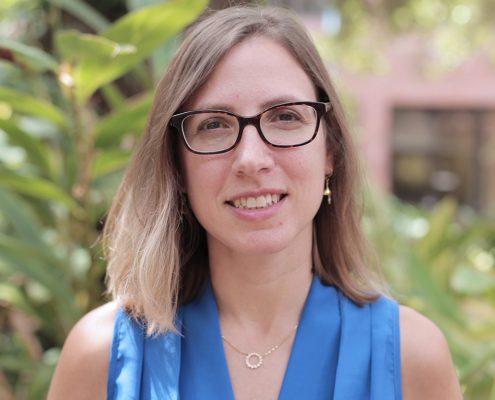Maya Israel, associate professor of educational technology, and a team of computer science (CS) education leaders were awarded $299,624 from the National Science Foundation to cultivate a Research Practice Partnership (RPP) that explores and addresses the barriers to inclusive elementary CS education.
As the principal investigator, Israel will partner with CS education leaders from P.K. Yonge Developmental Research School, Broward County Public Schools, New York City Public Schools and the San Francisco Unified School District to explore ways to expand inclusion in CS education for students with disabilities.
The project, titled “Universal Design for Learning for Computer Science (UDL4CS): Partnership for Inclusive Elementary Computer Science Education,” aims to build sustainable partnerships among districts around the shared problem of practice of fostering equitable PK-8 CS education and meaningful inclusion of students with disabilities.

Maya Israel
“There is an enormous bias about who can participate in computer science education, and one of my main goals is to show that with the appropriate pedagogical approaches and accessible technologies, most kids can be very successful,” said Israel, who also serves as research director of the Creative Technology Research Lab (CTRL), established to investigate how to engage all learners in technology-mediated learning.
Taking a design-based implementation research (DBIR) approach, the team will examine the current level of inclusion of K-12 students with disabilities and identify and unpack the existing barriers to inclusion that are unique and shared among participating districts. Based on their findings, web-based resources will be designed using the latest emerging technologies to provide professional learning and development opportunities for educators to build their capacity to support CS education for all learners.
“Teachers need accessible curricula, they need flexible instructional materials, and with those, the data that we have students with disabilities can be successful,” Israel said. “But oftentimes what happens is that people make the assumption that students aren’t being successful because of their disability, not because the curriculum is disabling.”
The UDL4CS project begins in January 2021 and is expected to be completed in 2023.
“UDL should be an essential part of every teacher education curriculum and certainly for every computer science education course,” said Christy Crawford, director of Culturally Responsive-Sustaining Education for New York City’s Computer Science for All Initiative. “Students whose teachers pro-actively design lessons including supports for all students can easily become thoughtful, pro-active computer scientists adept at producing inclusive technology and systems.”






